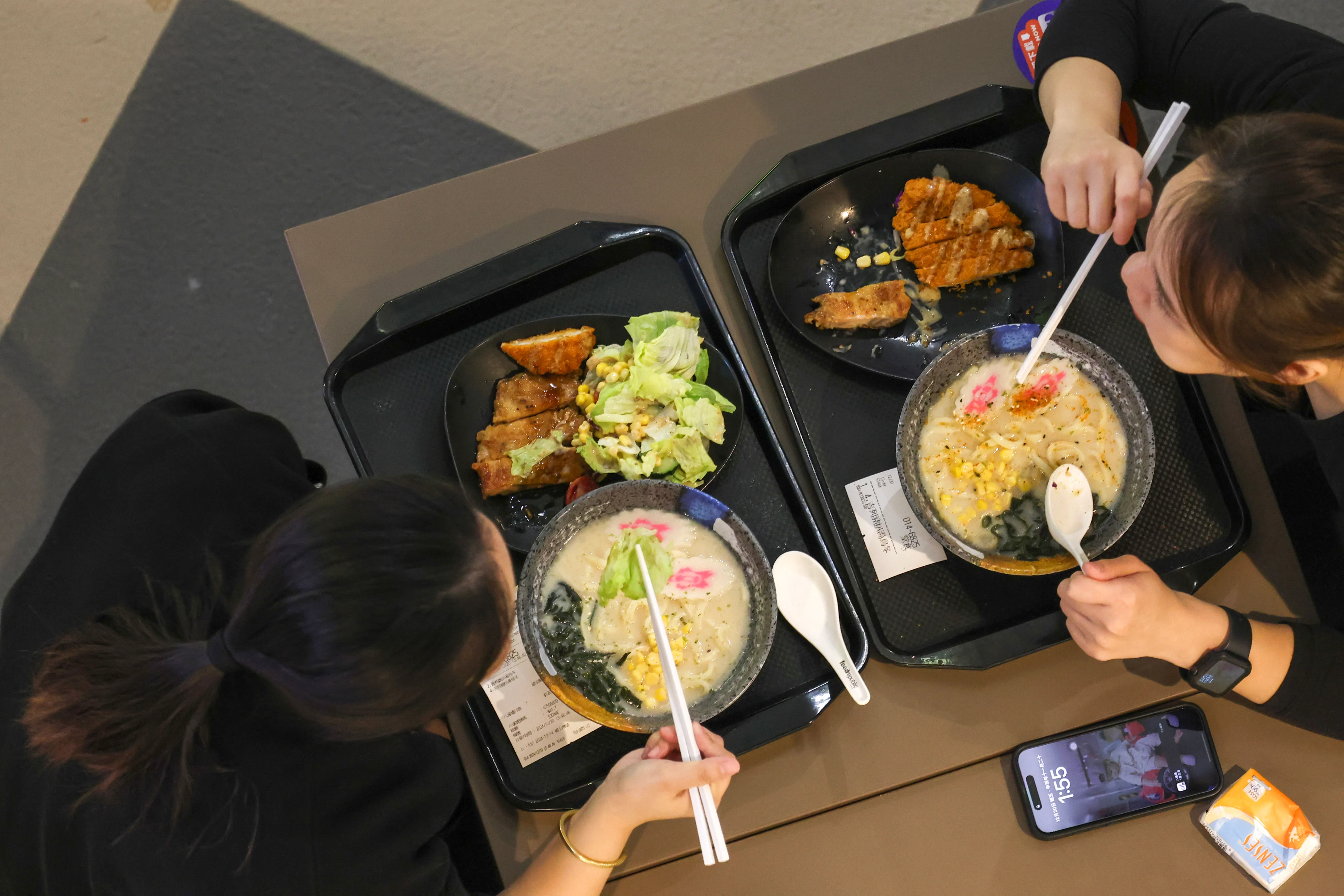By Jiang Chuqin
Copyright scmp

Ramen restaurant operator Dominic Tang insists on going to a wet market in Hong Kong to buy seafood to prepare shrimp soup every day, resisting the temptation to use a low-cost pre-made option.
Tang, 39, made a decision to forgo potential savings of 30 per cent on labour and ingredients after visiting an upmarket restaurant and spending HK$700 on dim sum, only to find that some buns had imprints from packaging paper.
He did not complain but vowed never to return to the restaurant again.
“It is very tempting for restaurant owners to turn to pre-made dishes, given the expensive rent and salary base in the city,” Tang said.
More Hong Kong restaurants are turning to pre-cooked food to save costs, especially at a time when the industry is reeling from shutdowns. However, diners are wary about the origins and safety of such products.
Concern has ballooned to such an extent that Secretary for Environment and Ecology Tse Chin-wan weighed in on the issue on Thursday, ruling out the possibility of requiring labelling for pre-cooked meals at restaurants in the absence of uniform standards and varying interpretations of products.
But he promised to continue to develop standards and certifications for prepared dishes to support the industry’s growth.
According to guidelines from the Centre for Food Safety, pre-made meals, also known as prepared dishes or ready meals, refer to those made from one or more food ingredients and stored for later use as finished or semi-finished products.
The guidelines call for restaurants to cook such products thoroughly at a temperature exceeding 75 degrees Celsius (167 Fahrenheit) before serving, rather than simply reheating them.
“People should have more knowledge about what ‘pre-made’ is first,” said Leonard Fong, director of restaurant group Million World Holdings. His company started exploring the pre-made food business during the pandemic.
“It is about how the raw materials are handled and preserved.”
Fong said some of the negative image of pre-made food came from the dishonesty of the restaurants and some “bad apples” in the industry.
A Michelin-recommended restaurant, Twins Liang Pi in Mong Kok, was mired in controversy last month after diners discovered that it used dry, pre-packaged noodles rather than fresh ones for its HK$34 signature dish, cold steamed noodles.
Diners complained that such pre-packaged products were available for about HK$20 per kilogram, expressing disappointment that the restaurant did not produce what it called “authentic” noodles.
The restaurant said that it never mentioned the noodles were home-made.
Leo Yuen Chung-on, founding chairman of the Hong Kong Food Science and Technology Association, said people were willing to pay extra for a dining experience such as watching chefs prepare their food in an omakase setting. Conversely, they felt a meal was not worth the price if staff simply used a microwave to heat pre-made food.
He noted that the local industry had no consensus on the definition of “pre-made dishes,” as Hong Kong had heavily relied on processed food, including pickled and canned items, for decades.
“It is not a problem with the food quality or taste,” he said. “It is about the customers’ perception of the value of the food product.”
This is what restaurant owner Tang said he felt as a customer. He said he would be disappointed if he found out the restaurant used frozen food and only heated the dishes.
“I can only accept pre-processed food, such as items that are pre-cut or pre-washed, but cooking must be done on site,” he said.
Kaman Wong, a white-collar worker in her thirties, said she was drawn to Tang’s restaurant, One Night Camp in Tai Koo, after seeing a queue and searching online.
“When you walk in, you can smell the freshly made shrimp soup,” Wong said.
Fong, the company director, pointed to the demand for pre-cooked meals from business operators.
His company started exploring the use of a central kitchen during the pandemic, when it still operated three restaurants. With two outlets later closing down, the company decided to keep the food factory running and sell products to other restaurants around a year ago.
With new freezing technology called the “Cells Alive System”, cooked food such as pork belly could be preserved for three months or longer, Fong said.
The company’s pre-made food service gained around 200 clients in the past 12 months, with more than 60 per cent being restaurants, including small noodle shops, bars and clubs, he said.
Some outlets had seen pre-made food as their last chance of survival, as one-fourth of Fong’s clients had eventually decided to cease operating.
As the kitchen also supplied food for hospitals and schools, the company promised not to use any preservatives.
With one local experienced chef coming up with recipes in-house, the company currently offers 20 pre-made cuisines, with curry chicken and Dongpo pork being the most popular items.
“Those small shops cannot afford a full-time chef, which is where our products come in,” Fong said.
“We help them widen the range of their menus, and they don’t need to hire a professional chef for every item.”
In response to diners’ concerns about pre-cooked meals, Yuen, a qualified nutritionist for around 30 years, said the nutritional value depended on the ingredients, for example, how much meat was used in a sausage for protein and fat.
He added that food safety depended on the processing, specifically whether preservatives were added.



